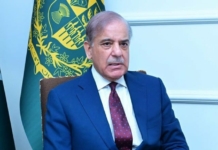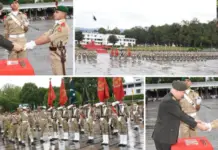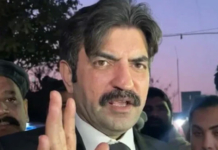The establishment is considering the formation of three military courts under the Pakistan Army Act and the Official Secret Act to try civilians involved in attacking military installations, torching Jinnah House, and disparaging and disgracing the armed forces as part of an international agenda.
According to the sources, the military courts were modified by the 21st Amendment after being formed under Chapter 9 of the Pakistan Army Act. After the shooting at the Army Public School in 2015, the section was updated.
They noted that on January 6, 2015, the National Assembly adopted the bill.
When asked about the relevant law that permits the constitution of military courts to try civilians involved in anti-state activities, Special Public Prosecutor Rizwan Abbasi responded, “This amendment allowed the establishment of special military courts to try civilians suspected of terrorism.”
In order to achieve the particular need of establishing special military tribunals under the Pakistan Army Act, he insisted that at least four articles were altered via the 21st amendment, which was updated in 1967.
He insisted that punishment will be meted out to citizens involved in luring the Army, Navy, and Air Force as well as civilians implicated in breaking the Official Secret Act. Later amendments to the Pakistan Army Act were made in 1977 and 1998, according to Rizwan Abbasi.
“A first information report (FIR) bearing 314/20 was lodged with the Shalimar police station under Section 331 of the Pakistan Penal Code (PPC) on the complaint of Ray Tanvir Ahmad, son of Ray Bashir Ahmad, a resident of Chaklala, Rawalpindi, on October 1, 2020, saying that one, Hasan Askari, son of Syed Zafar Mehdi Askari, a resident of F-11/4, Islamabad, has written letters to different senior members of the armed forces of Pakistan, wherein he has attempted to seduce and entice them from their duties and create hatred, contempt, disaffection, and disloyalty by implying collective insubordination and resistance against the army chain of command.”
The FIR also maintained that Hasan also used illegal remarks against the senior military leadership and command.
Using tools like geofencing, which helped identify their identities and positions in numerous insurgency-prone regions, detectives assert to have amassed considerable evidence against criminals.
This suggested that the party leadership had assigned particular extremist gangs as its targets. Additionally, they caught the criminals and recognized them from video evidence showing the PTI leadership encouraging the assaults.
The JAG (judge advocate general) Branch, which reports directly to the Directorate of Army, has been given a separate list of men and women involved in anti-state activities to determine the legal manner of their trial in special military courts, the sources claimed. They also added that the miscreants involved in violating the Official Secret Act would be brought before the courts of law within the next 10 days.







